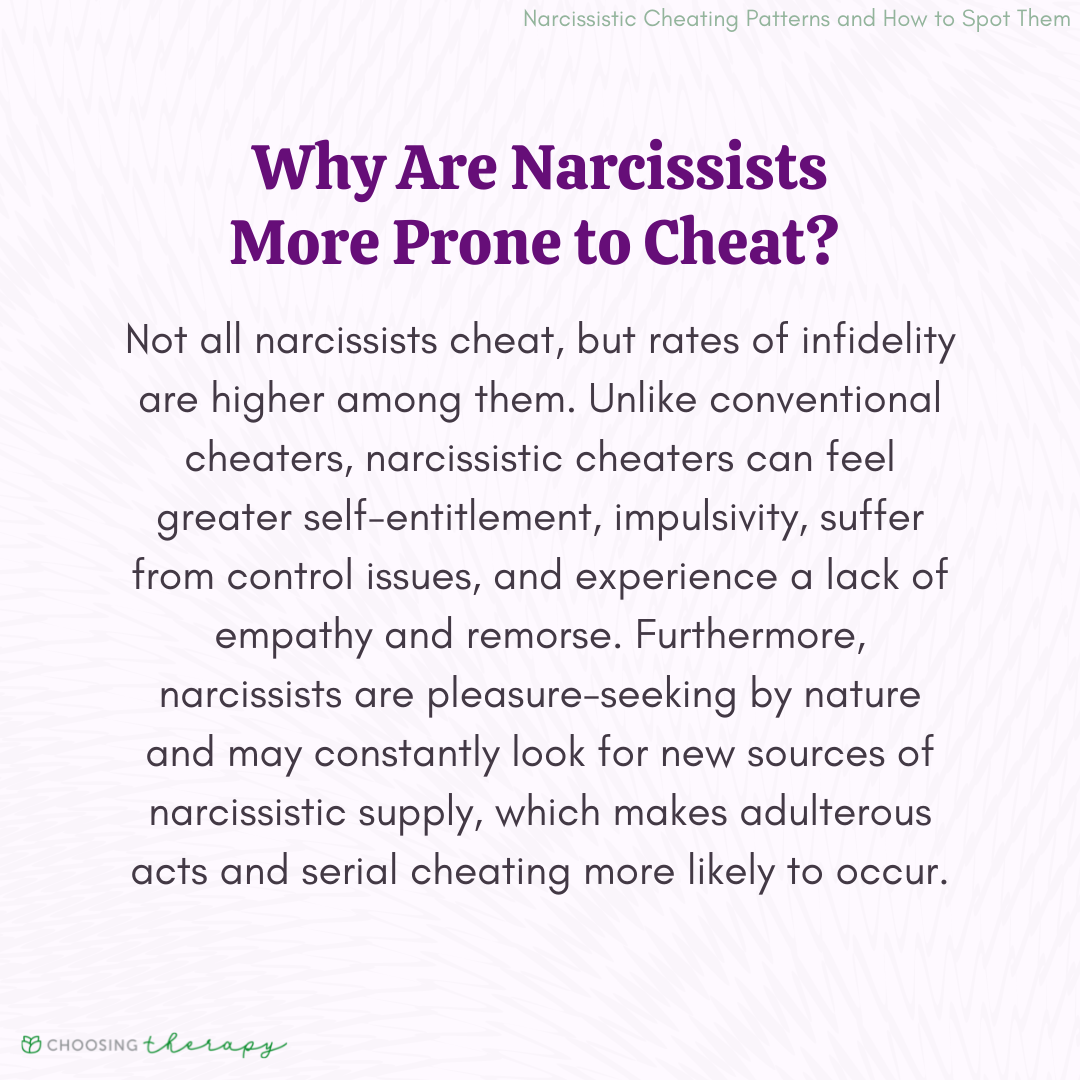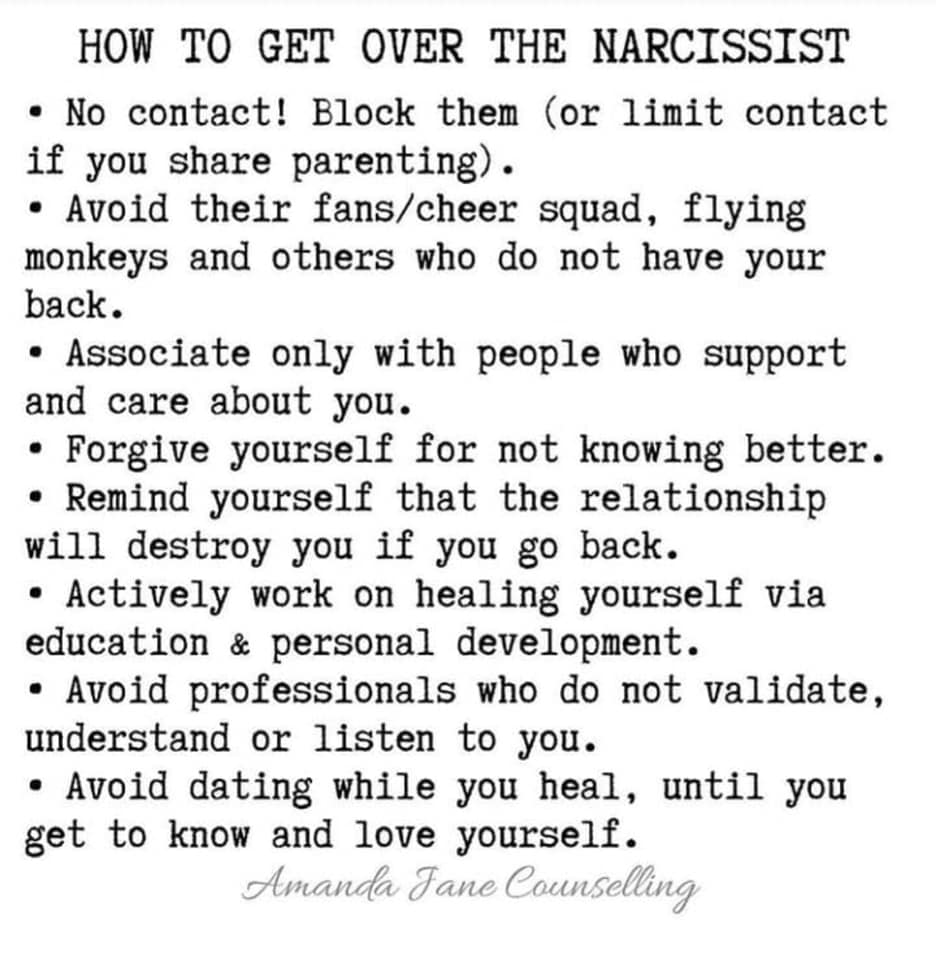December is Narcissistic Abuse Awareness Month
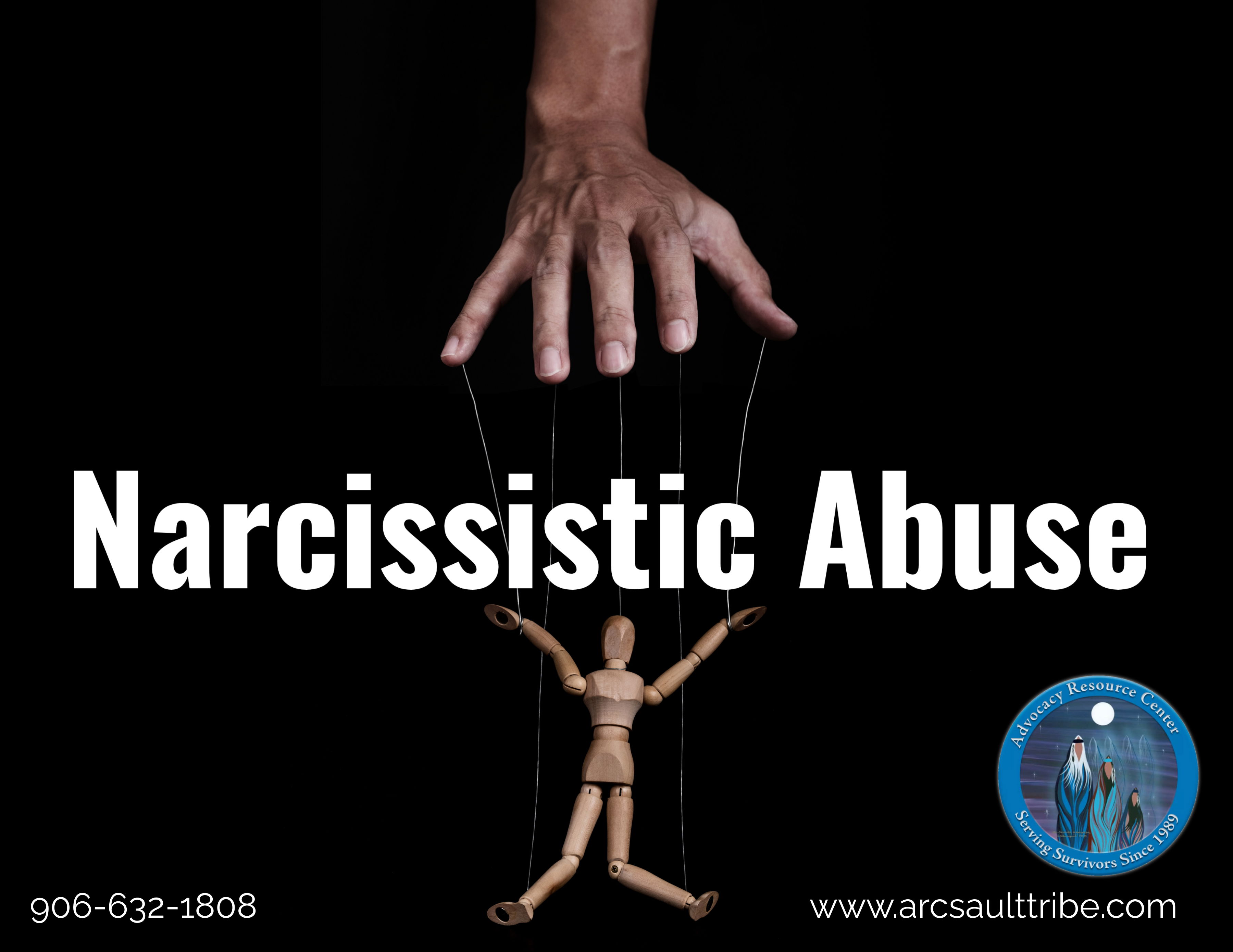
Below is an article from choosingtherapy.com regarding narcissistic abuse. The links inside the article are helpful and informative.
https://www.choosingtherapy.com/narcissistic-abuse/
What is Narcissistic Abuse?
Narcissistic abuse typically involves emotional abuse in the form of put-downs, accusations, criticism, or threats. A narcissist may gaslight you or contradict you in front of others. Withholding money, the silent treatment, isolation, and lying about you to others are other narcissistic manipulative techniques in their toolbox. The end goal of a narcissist is to control their victim’s behavior into maintaining their supply.Victims of narcissistic abuse have been reported to experience symptoms similar to PTSD, known informally as narcissistic abuse syndrome. Symptoms include intrusive, invasive, or unwanted thoughts, flashbacks, avoidance, feelings of loneliness, isolation, and feeling extremely alert. Being placed in a similar situation may trigger the victim physically or emotionally.
Victims of narcissistic abuse have been reported to experience symptoms similar to PTSD, known informally as narcissistic abuse syndrome. Symptoms include intrusive, invasive, or unwanted thoughts, flashbacks, avoidance, feelings of loneliness, isolation, and feeling extremely alert. Being placed in a similar situation may trigger the victim physically or emotionally.
25 Signs of Narcissistic Abuse
Narcissists have an arsenal of tactics to destroy their partner’s reality and confidence to gain or keep control over the relationship or marriage. They may make you feel like you’re crazy, making it less likely that you will reach out to family and friends for help. A narcissist may use emotional, mental, physical, financial, spiritual, or sexual forms of abuse.
Here are 25 signs of narcissistic abuse:
1. Gaslighting
Gaslighting is the intentional act of making you distrust your views of reality or believe that you’re mentally unstable using specific targeted phrases to make you feel this way. Here are a few signs you are being gaslighted:
- You no longer feel like the person you used to be
- You feel like everything you do is wrong
- You always think it’s your fault when things go wrong
- You feel more anxious and less confident than you used to be
- You often wonder if you’re being too sensitive
- You often question whether your response to your partner is appropriate
- You’re apologizing often
- You have a sense that something’s wrong, but aren’t able to identify what it is
- You make excuses for your partner’s behavior
2. Emotional Abuse
Emotional abuse could include accusing, belittling, blaming, bullying, criticizing, demanding, ordering, raging, sarcasm, shaming, or threatening.
3. Projection
Projection involves dumping their issues onto their victim instead of taking any blame. For instance, a narcissistic abuser may accuse their partner of lying when they have lied (this is sometimes referred to as “Deny, attack, reverse victim & offender“). Or they make a partner feel guilty when they’ve done nothing wrong. This creates confusion.
4. Twisting
When a narcissist is confronted, they will twist it around to blame their victims for their actions. They will not accept responsibility for their behavior and insist that their victim apologize to them.
5. Lack of Empathy
The lack of empathy or ability to feel and express emotions is the major reason why a narcissist’s relationships fail. In a healthy relationship, both partners care for each other’s well-being. In a narcissistic relationship, the non-narcissistic partner will not feel cared for and will show signs of sadness and loneliness.
6. Lying
Persistent deception to avoid responsibility or to achieve the narcissist’s own ends.
7. Silent Treatment
Narcissists punish by ignoring. Then they let their victim “off the hook” by demanding an apology even if they weren’t to blame. A narcissist may also have a history of cutting others out of their life permanently over small things.
8. Sabotage
Disruptive interference with your endeavors or relationships for the purpose of revenge or personal advantage.
9. Grandiosity & Overstating Their Own Importance
A narcissist’s grandiose sense of self-importance leaves no time or space for their partner or anyone else, leaving their partner feeling alone in the relationship.
10. Emotional Blackmail
Emotional blackmail is another form of manipulation to make you feel fear, guilt, or doubt. They may use anger, intimidation, threats, warnings, or punishment to keep you in line.
11. Making Everything a Competition
One-upping to always be on top, sometimes through unethical means, such as cheating in a game.
12. Love Bombing
Love bombing involves demonstrating attention and affection in an attempt to influence someone. It can cause internal conflict and confusion to the narcissist’s partner.
13. Financial Abuse
Financial abuse might include controlling you through economic domination or draining your finances through extortion, theft, manipulation, or gambling, or by accruing debt in your name or selling your personal property.
14. Privacy Invasion
Ignoring your boundaries by looking through your things, phone, or mail; denying your physical privacy or stalking or following you; ignoring your request for privacy.
15. Arrogant & Superior Attitude
Narcissists are incapable of connecting with other people’s feelings, causing their partner to feel unheard or ignored in the relationship. Over time, you will learn to not express your feelings or share the things that are happening in your life.
16. Character Assassination or Slander
Spreading malicious gossip or lies about you to other people.
17. Negative Contrasting
Unnecessarily making comparisons to put you in a negative light, pitting you against the narcissist or other people.
18. Sense of Entitlement
Narcissists expect to receive special treatment. If you do not bow to their every wish or demand, they will act out. You may receive the “cold shoulder” or “silent treatment,” or be met with name calling or physical abuse.
19. Withholding
This may include withholding such things as money, sex, communication, or affection from you.
20. Manipulative Behavior
Narcissists are the masters of emotional manipulation. They will try to control your thoughts and desires. Making future promises and emotional blackmail are two forms of manipulation but gaslighting is most common. Manipulation causes confusion, low self-esteem, anxiety, shame, and guilt. You may also be manipulated to stay home, not go to work, engage in sexual acts, or spend money on the narcissist.
21. Playing the Victim Card
When all else fails, the narcissist resorts to playing the victim card. This is designed to gain sympathy and further control behavior.
22. Ignoring Your Achievements
Talking about your achievements will trigger a narcissist’s insecurities and jealousy. They will escape the topic by cutting you off or changing the conversation. They will talk negatively behind your back or make up lies to discredit you and your accomplishments.
23. Hoovering
This term is used to describe a narcissist “sucking” someone back into a relationship, usually after a round of silent treatment.
24. Hogging the Conversation
Narcissists love to talk about themselves. They will embellish and flat-out lie to make themselves look better than others or inflate their accomplishments. There is no room to talk about your accomplishments, nor do they care about them in the first place.
25. Exploitation
People in their life are viewed as objects to meet the narcissist’s needs. They will take advantage of others without guilt or shame. They do not think about how their actions affect others, leaving their victims feeling unloved and uncared for.
Does this sound familiar?
If so, it might be time to reevaluate your relationship. It is not easy to navigate from day to day in this type of relationship. We learn to "walk on eggshells" and to avoid "upsetting" the narcissist. We learn what buttons to avoid pushing, what issues or problems are not even worth mentioning, what topics to avoid, and who we are "allowed" to talk to. It isn't fair and it isn't healthy.
Many abusive relationships have a narcissist in direct control of the entire relationship, including home life and extended family life. The narcissist likes to be in control and by doing so-they control who you see, who you can talk to, where you can go, and they will make sure you adhere to the rules or there will be consequences.
Narcissists will stop at nothing to ensure they have you all to themselves. It is important for friends and family members of the victim who may recognize this behavior in the narcissist to not give up on the victim as they may desperately want your help but are not "allowed" to contact you.
Dealing with a narcissist in any capacity is not easy. They are always right, they know everything, and will never back down. Finding an exit strategy is not going to be easy. Just know, that regardless of all the empty promises made-the narcissist never changes their ways-they only get more creative at ways to control you. You deserve better.
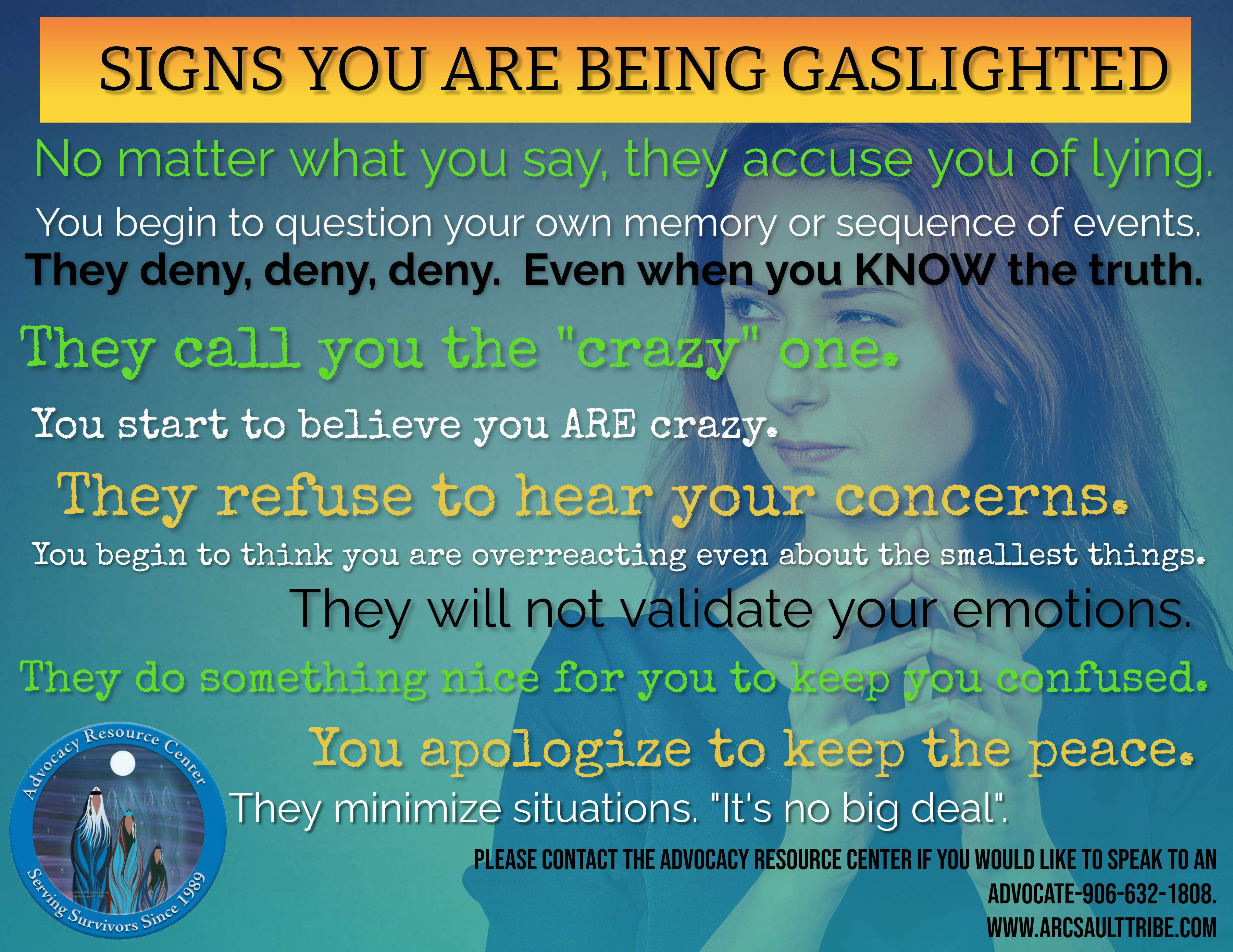
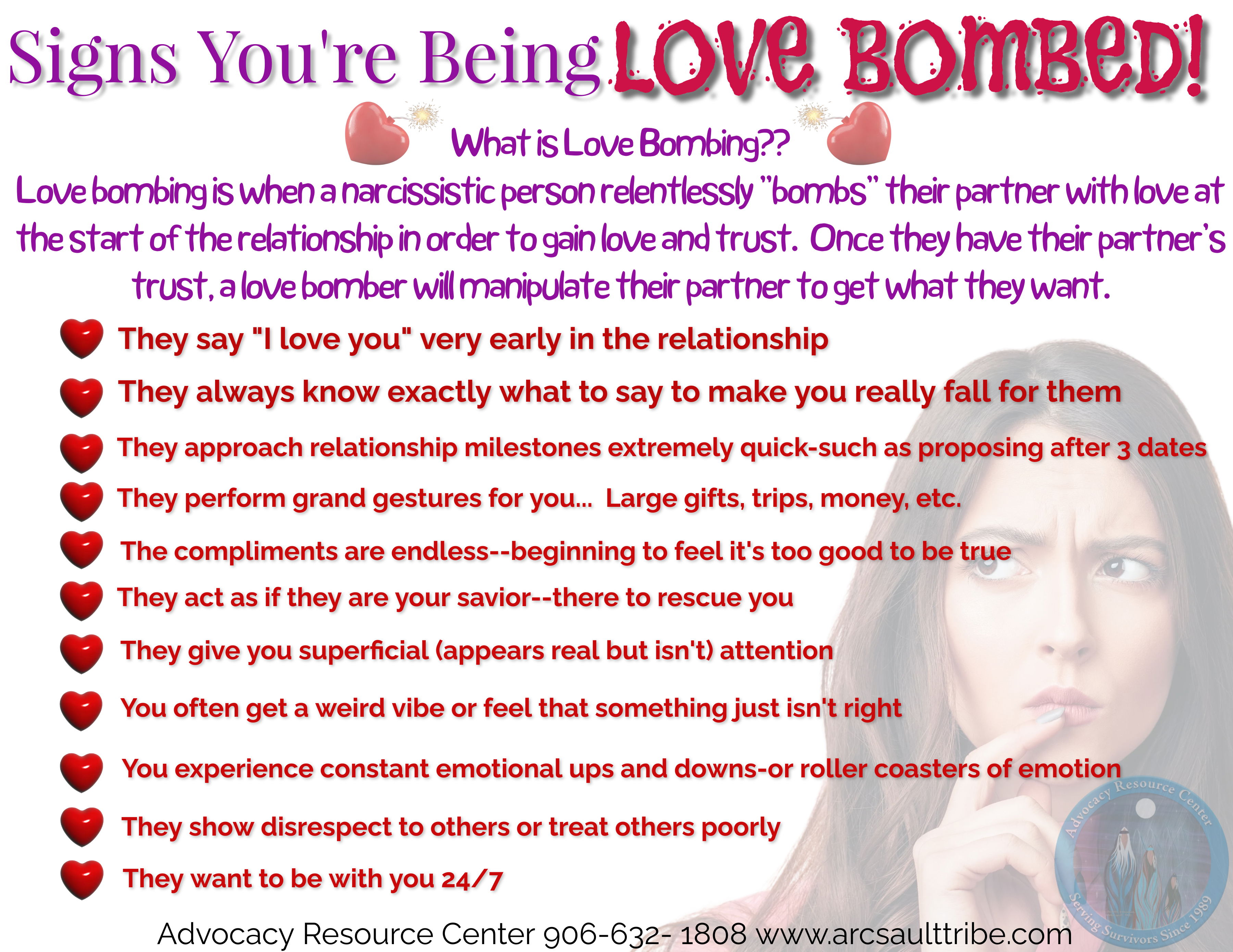
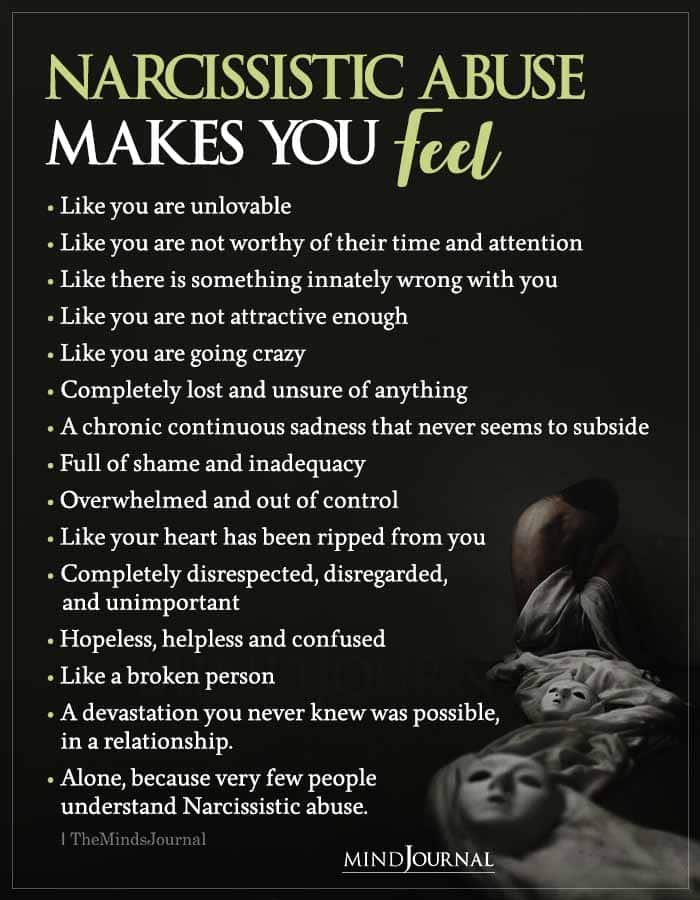
Many people have experiences with a narcissistic abuser. Each experience different yet many are the same. Narcissistic patterns are often telling and become glaringly obvious once you detect them. However, some narcissists are so good at their craft you may have already normalized their behavior and are oblivious to the fact that something is seriously wrong.
: Click on the following link to learn about the 8 different types of narcissists.
https://www.mindbodygreen.com/articles/types-of-narcissists
When It's Time To Leave:
Narcissist abuse symptoms
Question: When is the best time to end a relationship with a narcissist?
Answer: As soon as you recognize any of the narcissistic abuse symptoms here:
- significant self-esteem decline
- feeling worthless
- feeling helpless and under his/her control
- You’re influenced by his/her behavior
- Feeling manipulated and isolated from others
- question your own sanity
- self-blame
- devalued self-worth
- justifying a narcissist’s acts
- feeling sorry for her/him
Ending the Narcissistic Relationship
1. Create an exit strategy
2. Recognize the negative energy that no longer surrounds you.
3. End ALL contact with the narcissist -if contact is necessary for children in common, use a mediator or a texting app that helps reduce conflict and stress (AppClose, OurFamilyWizard Co-Parent App, and WeParent are helpful apps to use. Be sure to block common friends if necessary.
4. Find closure upon learning the ways of the narcissist and use your experience with a narcissist to learn and grow
5. Give yourself time to move on and heal.
